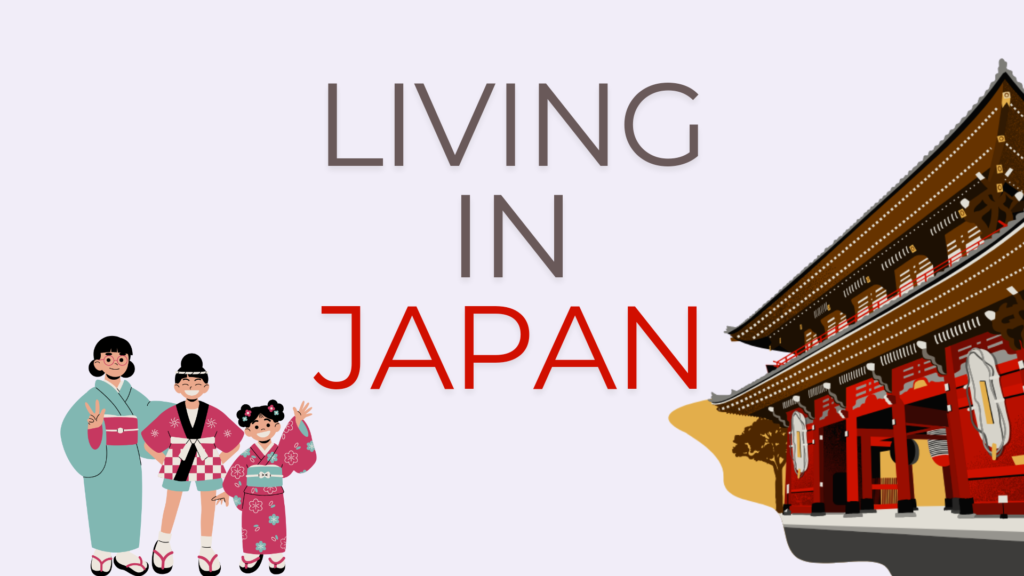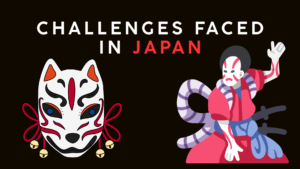Get in touch: hello@1pmcoffee.com
Living the Dream: #1 The Ultimate Guide to Studying in Japan

Contents:
- Introduction
- The Quirky World of Japanese Undergraduate Life
- Master’s Studies: Specialized, Stressful, and Satisfying
- Doctoral Studies: Deep Dives and Unique Opportunities
- Postdoctoral Studies: Prestige and Perks
- The Unforgettable Blend of Academics and Adventure
- Wrapping It Up
Introduction
So, you’re thinking about studying in Japan, huh? Well, buckle up because I’m about to take you on a virtual tour of what makes studying in Japan an unforgettable experience for students from India—or anywhere else for that matter. From the bustling undergraduate scene to the prestigious postdoctoral research opportunities, there’s something special at every level. So without wasting any time, let’s dive in!
The Quirky World of Studying in Japan
1. Ramen Nights and Convenience Store Culture
When you think of convenience stores back home, you probably think of a quick snack or a bottle of water. In Japan, convenience stores, or “konbini,” are a whole new world. Picture this: it’s 2 AM, you’re cramming for a test, and you need a break. You head to the nearest Lawson, and there you find fresh sushi, hot ramen, onigiri (rice balls), and even decent coffee. The variety and quality are mind-blowing.
Plus, konbini culture means you can pick up your Amazon packages, pay bills, and buy concert tickets all in one place. Late-night ramen runs with friends become a ritual. The tiny ramen shops, often hidden down narrow alleys, serve up steaming bowls of deliciousness, and the communal experience of slurping noodles side-by-side is something you’ll cherish.
Want to learn more about the exciting student life in Japan? Check out my blog on Work Opportunities for International Students in Japan and see how you can earn while studying here.
2. Club Activities: From Karate to K-Pop Dance
Joining a university club, or “circle,” is a must. These clubs cover every interest imaginable. Always wanted to try karate? There’s a club for that. How about a tea ceremony, calligraphy, or even K-pop dance? Yup, they’ve got those too. What’s awesome is the sense of community and belonging you get from these clubs. They organize trips, competitions, and social events, which means you’re always doing something fun and meeting new people. For instance, I joined a hiking club, and we’d have weekend trips to climb some of Japan’s beautiful mountains. It’s a fantastic way to see the country and bond with fellow students.
For more on how Japanese universities support your social and academic life, read my blog on Top Japanese Universities for International Students.
3. High-Tech Classrooms
Forget everything you know about traditional classrooms. In Japan, many universities are at the cutting edge of educational technology. Imagine attending lectures where the professor uses holograms to illustrate complex concepts, or participating in virtual reality (VR) lab experiments. I remember my first time using VR in a biology class—it was like stepping inside the human body and exploring it from the inside out. This high-tech environment not only makes learning more engaging but also prepares you for a future where technology plays a crucial role.
Master’s Studies: Specialized, Stressful, and Satisfying
4. Research Labs That Feel Like Sci-Fi Movies
Graduate studies in Japan, especially in fields like engineering, IT, and biotechnology, are a dream for any tech enthusiast. The research labs are equipped with cutting-edge technology. Imagine working in a robotics lab where you’re helping to design and build the next generation of humanoid robots, or a biotech lab where you’re part of groundbreaking genetic research. The facilities are so advanced that you sometimes feel like you’ve stepped into a sci-fi movie. The hands-on experience you get here is unparalleled and prepares you for the high-tech demands of the modern workforce.
By the way, if you’re considering or even thinking about starting your journey for your masters in Japan, you can schedule a personal consultation with me: https://1pmcoffee.com/consultation/
5. Onsen Trips to De-Stress
Graduate life can be intense, and Japan offers the perfect way to unwind—onsens (hot springs). These natural hot springs are scattered all over the country, often set in stunning natural locations. Picture this: after a tough week of lab work and classes, you head out with your friends to an onsen in the mountains. You soak in the hot water, surrounded by beautiful scenery, and feel all your stress melt away. Onsen visits become a regular part of your routine, offering a unique way to relax and bond with friends. Plus, there’s nothing quite like the experience of sitting in a steaming hot spring while snow gently falls around you in the winter.
6. The Unique Blend of Tradition and Modernity
One of the most fascinating aspects of studying in Japan is the blend of tradition and modernity. During the week, you might be working with the latest technology in your university’s state-of-the-art labs. Then, on the weekend, you can visit centuries-old temples, participate in traditional tea ceremonies, or stroll through tranquil Japanese gardens. I remember a weekend trip to Kyoto, where I spent the day visiting ancient temples and the evening in a high-tech gaming arcade. The contrast is striking and makes for a rich, multifaceted experience.
Doctoral Studies: Deep Dives and Unique Opportunities
7. Extreme Focus on Research
Doctoral studies in Japan are intense, but the focus on research is unparalleled. The Japanese approach to research is highly disciplined and methodical. Labs operate like well-oiled machines, with precise schedules and high expectations. This environment pushes you to produce your best work. The dedication to research is evident everywhere. For instance, at Tohoku University, I had the chance to work on a groundbreaking project in renewable energy. The lab was equipped with the latest technology, and the collaborative spirit among researchers was inspiring. The experience taught me the value of persistence and meticulous attention to detail.
Thinking about applying for a PhD? Don’t forget the importance of having a solid research plan. Check out my guide on The Importance of Research Plans for Graduate Applications for expert tips.
But did you know that your research journey actually starts before you join your university? That’s right, even before you apply, you have to have a solid research plan, we can help you with is, more information here: https://1pmcoffee.com/research-plan-assistance/
8. Collaborative Projects with Industries
One of the coolest things about doing a PhD in Japan is the opportunity to collaborate with industries. Japanese universities have strong ties with top tech companies, research institutes, and startups. Imagine working on a project with a leading robotics company or contributing to a study funded by a major pharmaceutical firm. These collaborations provide real-world applications for your research and can lead to exciting job opportunities post-graduation. I had the chance to work on a joint project with a major automotive company, which not only enriched my research but also gave me a foot in the door for future career prospects.
9. Sensei: More Than Just Professors
In Japan, professors, or “sensei,” play a significant role in your academic and personal growth. They are not just your academic advisors but also mentors who guide you through your research journey. The relationship with your sensei is built on mutual respect and often extends beyond your university years. Many sensei become lifelong mentors and friends. My sensei at Kyoto University was incredibly supportive, providing valuable feedback on my research and offering career advice. The bond we formed has been instrumental in my professional development.
Postdoctoral Studies: Prestige and Perks
10. Funding That Lets You Fly
Securing a postdoc position in Japan often comes with prestigious fellowships and grants. Programs like the Japan Society for the Promotion of Science (JSPS) offer generous funding that covers your research expenses, living costs, and travel allowances. This financial support allows you to focus entirely on your research without worrying about financial constraints. I received a JSPS fellowship that not only funded my research but also allowed me to attend international conferences, expanding my professional network and exposure.
Not sure if Japan is the right fit for your postdoc? My blog on Other Scholarship Opportunities for International Students in Japan (Besides MEXT) might help you decide.
11. International Conferences and Collaborations
Japan is a hub for international conferences and academic gatherings. As a postdoc, you’ll have the opportunity to present your research at these conferences, gaining valuable feedback and networking with leading experts in your field. These events often lead to exciting collaborations and research partnerships. I presented my research at an international conference in Tokyo and ended up collaborating with a researcher from Germany on a groundbreaking project. These experiences broaden your horizons and open up new avenues for research.
Looking for a step-by-step guide on how to apply to universities in Japan? Check out my detailed guide How to Apply to Japanese Universities: A Step-by-Step Guide for International Students.
12. Life-Changing Travel Experiences
Living in Japan as a postdoc also gives you the perfect base to explore other parts of Asia. From the snowy slopes of Hokkaido to the tropical beaches of Okinawa, Japan itself offers diverse travel experiences. But it doesn’t stop there—flights to other Asian countries are relatively affordable, allowing you to explore neighboring countries during your holidays. During my time in Japan, I visited South Korea, Taiwan, and Thailand, each trip enriching my cultural understanding and providing unforgettable memories.
13. Unique Living Arrangements
Forget dormitories and typical apartments. In Japan, many international students opt to live in share houses. These are communal living spaces where you share common areas like kitchens and living rooms with people from all over the world. Share houses offer a vibrant community atmosphere, making it easy to make friends and learn about different cultures. I lived in a share house in Tokyo with students from Italy, Brazil, and Korea. Our dinner parties were a fusion of global cuisines, and we often explored the city together, creating a close-knit community far from home.
14. Seasonal Festivals and Local Traditions
Japanese festivals, or “matsuri,” are an explosion of color, music, and tradition. Throughout the year, there are countless festivals celebrating everything from cherry blossoms to harvests. Participating in these festivals is a fantastic way to immerse yourself in Japanese culture. During the summer, I attended the Gion Matsuri in Kyoto, one of Japan’s most famous festivals. The streets were filled with traditional floats, music, and dancing. Wearing a yukata (summer kimono) and joining the festivities was an unforgettable experience. These festivals offer a deep dive into Japan’s rich cultural heritage.
15. The Politeness and Cleanliness
One of the first things you’ll notice in Japan is the impeccable cleanliness and the unfailing politeness of the people. The streets are spotless, public transportation is efficient and punctual, and there’s a general sense of orderliness that makes daily life pleasant. This level of respect and consideration for others is ingrained in Japanese society. I was amazed at how quiet and clean even the busiest parts of Tokyo were. The efficiency and politeness make daily errands and commutes stress-free, and it’s something you’ll miss when you leave.
The Unforgettable Blend of Academics and Adventure
16. Language Skills That Open Doors
Even if your program is in English, learning Japanese will enhance your experience immensely. From ordering food at a local izakaya (pub) to making friends with locals, speaking the language opens doors to deeper connections and richer experiences. Plus, being bilingual or multilingual is a significant asset in today’s global job market. Imagine the sense of achievement when you can watch anime without subtitles or negotiate prices in a local market confidently.
Curious about how to prepare for academic life in Japan? Check out my guide on How to Prepare for the EJU (Examination for Japanese University Admission for International Students).
17. Campus Festivals: The Ultimate Student Experience
Japanese universities are famous for their campus festivals, or “bunkasai.” These student-organized events are a highlight of the academic year, featuring food stalls, music performances, games, and exhibitions. Participating in these festivals is a blast. You get to showcase your culture, try out new foods, and enjoy the festive atmosphere.
18. Nature at Your Doorstep
Japan’s natural beauty is breathtaking and easily accessible. Whether you’re into hiking, skiing, or just enjoying a peaceful walk, there’s something for everyone. The country’s efficient public transport system makes it easy to escape the city and explore mountains, forests, and beaches. I spent weekends hiking in the Japanese Alps and even tackled the iconic Mount Fuji. These adventures were not just great for physical fitness but also provided a much-needed break from academic stress.
19. Food Adventures
Japanese cuisine is world-famous, and living in Japan means you get to enjoy it daily. From sushi and sashimi to tempura and ramen, every meal is a culinary adventure. Don’t miss out on trying the street food at local markets or the seasonal specialties that change throughout the year. And if you’re a foodie, you’ll love exploring the myriad of restaurants, from traditional izakayas to cutting-edge fusion restaurants.
20. Unparalleled Safety and Order
One of the most comforting aspects of living in Japan is the sense of safety and order. Crime rates are low, and there’s a strong sense of community and respect for rules. This means you can walk home late at night without worry and enjoy peace of mind in your daily activities. The public transportation system is incredibly efficient and punctual, making commuting hassle-free. The sense of security allows you to focus on your studies and enjoy your time in Japan fully.
Wrapping It Up
So, there you have it! Studying in Japan isn’t just about academics; it’s about embracing a whole new way of life. From the quirky convenience store culture and high-tech classrooms to the serene onsen retreats and vibrant festivals, every aspect of life in Japan is an adventure. Whether you’re an undergraduate, a master’s student, a doctoral candidate, or a postdoc, Japan offers a unique and enriching experience that goes beyond textbooks and lectures. It’s about personal growth, cultural immersion, and making lifelong memories.
Studying in Japan is more than just an academic journey; it’s a life-changing adventure. The blend of high-quality education, cultural immersion, and unique experiences makes it an ideal destination for students from India and around the world. Whether you’re navigating the high-tech corridors of your university, enjoying a midnight ramen run, soaking in an onsen, or participating in a vibrant festival, every day in Japan offers something new and exciting. Have more questions? I’m here to help with all your study abroad queries. Book a consultation today.
If you’re considering studying abroad, I can’t recommend Japan enough. To get a feel of what it’s like, follow my YouTube channel:
https://www.youtube.com/@1pmcoffee
It’s a place where you can grow academically, make lifelong friends, and create unforgettable memories. So, pack your bags, get ready for an adventure of a lifetime, and prepare to fall in love with Japan!
And remember, I’m here to answer any questions you might have about studying in Japan. Happy travels and happy studying!



